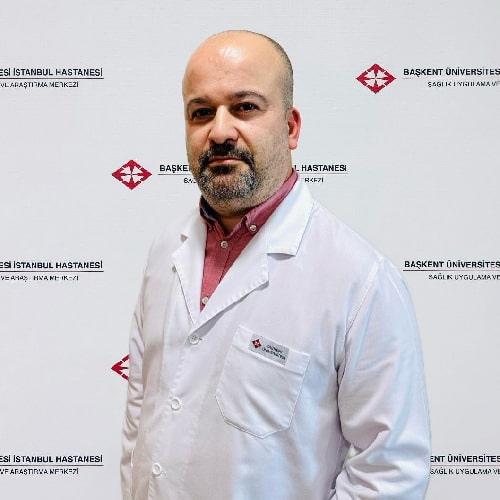
Overview
Department of Infectious Diseases and Clinical Microbiology offers outpatient and inpatient follow-up services for patients presenting with complaints of fever and/or other signs (diarrhea, jaundice, rash, dysuria, sore throat, cough, secretion and joint ache etc.) and provides inpatients of other departments with consulting services.
Routine patient evaluation at our outpatient clinic is supplemented by immunization of adults, pre-transplant infection screening, hepatitis and infection prevention counseling before overseas travels. Moreover, our department treats and follows up infections that emerge in patients who stay at intensive care units and inpatient clinics. We aim early diagnosis for adult patients with infection through means of modern medical knowledge and technology to ensure efficient treatment of infections; people presenting for prevention of community-acquired infections (hepatitis, AIDS, sexually transmitted infections etc.) are provided with information and immunized, while the risk of hospital-acquired infections is minimized.
The Clinical Microbiology Laboratory that is affiliated to our department offers laboratory services to outpatients and inpatients round the clock. Principles of total quality management are strictly observed, while patient specimens are accepted to the laboratory and processed and results are reported. All antibiogram tests performed in our laboratory fulfill recommendations of EUCAST (European Committee On Antimicrobial Suspectibility Testing) that is updated every year. Bacteria culture, antibiogram tests, tuberculosis staining, culture and susceptibility tests are checked at monthly intervals over an international external quality control system. There is also a Molecular Diagnosis (PCR) Laboratory, where viral agents are investigates, in the Microbiology Laboratory. Our Laboratory also deals with andrologic tests and also sperm wash and preparation for insemination before assisted reproductive technologies in collaboration with doctors of Gynecology and Obstetrics department. No specimen is accepted from third parties.
Tests analyzed in Microbiology Laboratory
- Evaluation of fresh and stained preparations under microscope
- Aerobic and anaerobic bacterial cultures
- Automated blood cultures.
- Advanced identification of bacteria and susceptibility tests
- Fungal cultures, identification and susceptibility tests
- Tuberculosis culture and susceptibility tests
- Standard tube agglutination test (Wright test for Brucella)
- Mono-Spot test (for infectious mononucleosis)
- Viral antigens in stool specimens, such as Rotavirus and Adenovirus
- Clostridium difficile toxin in stool specimens
- Helicobacter pylori antigen in stool
- Amoeba antigen in stool
- Calprotectin in stool
- Serologic tests in blood specimens
- Group B streptococcus (GBS) antigen analysis in pregnancies
- Influenza A-B
- Quick antigen test for Group A Streptococcus (Beta)
- RSV + Adeno virus antigen in nasopharyngeal swab
- Stained nasal smear to identify allergy in nasal smear
- Hydatid cyst hemagglutination (Echinococcus, indirect)
- Multiplex PCR (meningitis, sexually transmitted diseases, sepsis panel etc.) in blood specimens and various other specimens
- Quantiferon
- Spermiogram and Sperm Morphology
- Sperm wash and sperm preparation for insemination
- Gardnerella vaginalis antigen in genital specimens
- Chlamidia antigen in genital specimens
- CMVpp65 antigenemia in blood specimens
- Legionella antigen in urine
- HIV RNA viral load
- HCV Viral Load
- HCV genotyping
- HBV Viral Load
- HBV genotyping
- HBV lamuvidin resistance
- CMV Viral Load
- CMV genotyping
- CMV gancyclovir resistance
- EBV Viral Load
- HPV Viral Load
- HPV genotyping
- Polyomavirus BK and JC viral load
- HSV Type 1 and Type 2 identification
- Tuberculosis identification
- Parvovirus B19 identification
- Brucella abortus / melitensis identification
- Chlamidya trachomatis identification
- Methicillin resistance (mecA gene) identification in staphylococci







